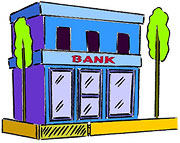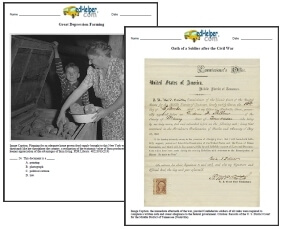
Worksheets and No Prep Teaching Resources
Reading Comprehension Worksheets
The Great Depression
(1929-1945)

The Great Depression
(1929-1945)
 Worksheets and No Prep Teaching Resources Reading Comprehension Worksheets The Great Depression (1929-1945) |
 The Great Depression (1929-1945) |
| edHelper's suggested reading level: | grades 5 to 7 | |
| Flesch-Kincaid grade level: | 4.78 |
|
Alphabet Soup II - Roosevelt's New Deal
By Toni Lee Robinson |

|
 1 President Roosevelt's first three months in office were busy. Things had to be done quickly to help needy people. The president had called Congress to special session. The leaders worked together on the New Deal. Laws were passed to bring healing to an ailing nation. This time was later called the "Hundred Days."
1 President Roosevelt's first three months in office were busy. Things had to be done quickly to help needy people. The president had called Congress to special session. The leaders worked together on the New Deal. Laws were passed to bring healing to an ailing nation. This time was later called the "Hundred Days." |
Create Weekly Reading Books
Prepare for an entire week at once! |
| Leave your feedback on Alphabet Soup II - Roosevelt's New Deal (use this link if you found an error in the story) |
 |
The Great Depression (1929-1945) |
 |
United States
|
|
|
 | Fifty States Theme Unit |
 |
Document Based Activities |